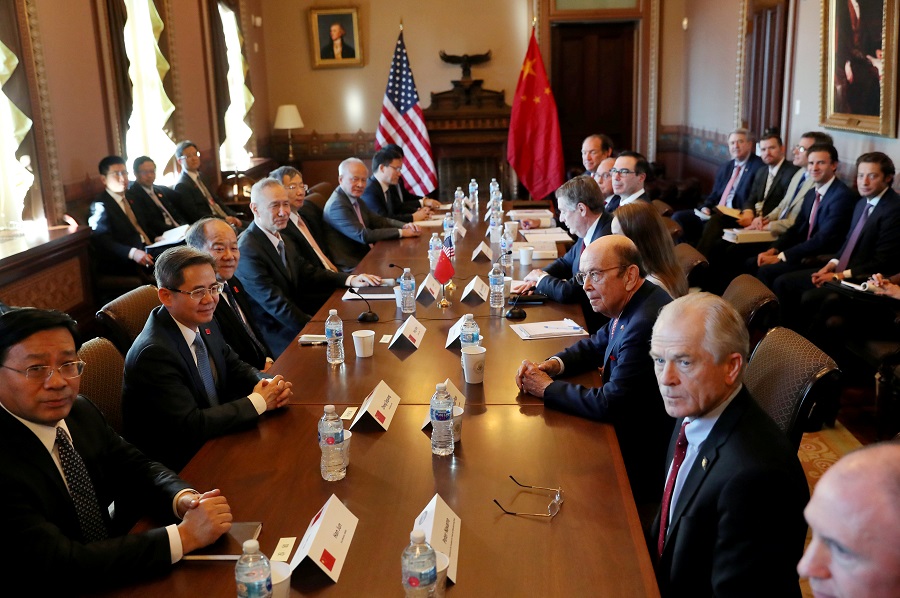Beijing firm on IP rights at trade talks


China said on Thursday that its position on strengthening intellectual property protection is "firm and consistent". It was a remark made amid ongoing talks between Beijing and Washington as they attempt to work out a solution to avoid escalation of trade and economic disputes.
No information was available from the closed-door discussions by press time, according to Gao Feng, spokesman for the Ministry of Commerce, at a regular news conference in Beijing.
The talks, headed by Chinese Vice-Premier Liu He and US Trade Representative Robert Lighthizer, started on Wednesday morning with an opening ceremony at the Eisenhower Executive Office Building adjacent to the White House and were to end on Thursday afternoon.
Gao said China will take more vigorous measures to further enhance the comprehensive protection of intellectual property rights in the legislative, judicial and administrative law enforcement areas, introduce a compensation system with punitive damages, significantly raise the cost of illegal violations and resolutely punish the infringement of intellectual property rights.
The trade conflict between China and the US, which involves the imposition of billions of dollars of tariffs on each other’s goods, is affecting both economies and global growth.
Experts have warned that lasting trade tension between the world’s two largest economies would not only impact their own businesses, workers and consumers, but also stoke global market fears of uncertainty and disruption, and erode confidence in long-term global economic growth.
The two countries, which are the world’s two largest economies, are acutely aware that if they do not prevent an escalation of trade tension, it will have a negative outcome for the global economy. China’s consistent position has been to show that it wants to negotiate in order to address the concerns of the two nations, said Lu Feng, director of the China Macroeconomic Research Center at Peking University.
While acknowledging that the talks will not be smooth, given the complexity and difficulty of certain issues in dispute, China maintains that there will be no insoluble issues between the two countries as long as they both keep in mind the considerable benefits of cooperation and show sincerity and mutual respect at the negotiating table.
"There are both challenges and opportunities facing China," said Honson To, chairman of KPMG in the Asia-Pacific region and China.
"The China-US trade dispute has brought uncertainty to the business community, which makes it difficult for companies to make long-term strategy and investment decisions," he said, adding that the latest round of talks between China and the US has shown signs of moving in the right direction, but companies are still closely watching its development.
As China came one step closer to finalizing the draft of a streamlined foreign investment law, the Ministry of Commerce said it will work with other government branches to formulate regulations to support the new law and create a more stable, transparent, predictable and fair competition environment for foreign investors.




































